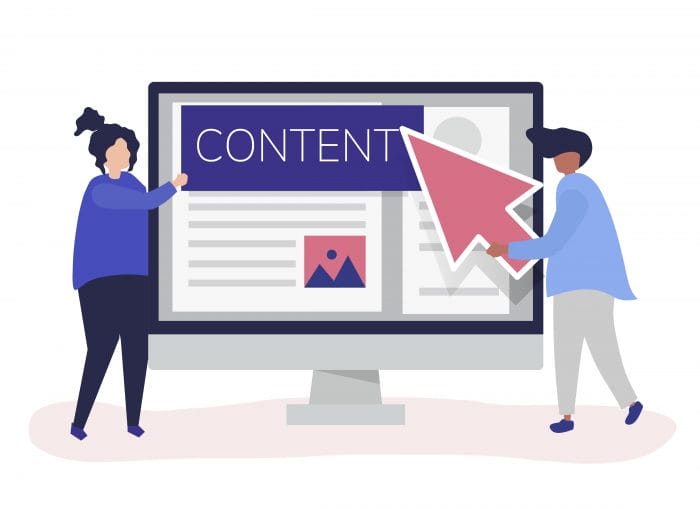B2B Content Strategy Roadmap
This article was published on April 12, 2024
Categorized in: Digital Marketing, Content
 When it comes to B2B, content is more important than you may realize. One can even make the case for it being at the very foundation of a successful digital marketing strategy. This means that you need to cover all your bases when developing a content marketing strategy.
When it comes to B2B, content is more important than you may realize. One can even make the case for it being at the very foundation of a successful digital marketing strategy. This means that you need to cover all your bases when developing a content marketing strategy.
It’s a trap to think that you don’t need a strategy when developing this strategy. The truth is, a lot goes into it. It isn’t a simple matter choosing a topic at random and writing and publishing the article. There’s a lot more to it than that. Here’s some information:
Perform a Comprehensive Content Marketing Audit
Most businesses come to us when they’ve already been working on their own marketing for a time. This means that many of them have already been working on their content. For these B2B’s, we always recommend starting with a comprehensive content audit where we analyze data to determine what is already working and what isn’t.
The content audit includes:
- Assessing analytics for each article and for the website as a whole.
- Researching relevant keywords to see if they can be used in existing and future content.
- Looking at the topics that have been covered to look for content gaps.
Consider the Phases of the Sales Cycle
After the content audit is complete, the next step is to assess the customer journey—in particular, the phases of the sales cycle and how your content fits into that. Chances are pretty good that most B2B’s, when not thinking of this consciously, end up favoring one of the phases of the sales cycle over others when creating content.
The truth is, you should have content that represents each of the phases. Now, there are three general, big picture phases that we address. These are:
- Awareness. This is when you publish content designed to capture new people into your audience. This is where you write pieces that explain who you are, what you do, and give people their first introduction to your product or service. On a website, this will be found in your about and company pages, and any content on your blog that pertains to these phrases.
- Consideration. After their first exposure, your customer base might be thinking of buying your product or using your service—but, they aren’t there yet. They need more information. This content builds on the work from the previous phase. It answers peoples questions and maybe addresses some of their objections. Content in this phase dives in more as to explaining your product or service.
- Conversion. In this phase, the individual is just about ready to say yes and either buy your product or sign up. But they need just one or two pieces of information before they do. The answer to these questions they may have will result in them signing up (or not). This content should give them the information they need.
Honoring your sales cycle is a core part of a successful content strategy for B2B. Along with the content audit, you will create a winning strategy that will improve your business.
Watch and listen below for more strategic advice:
LIKE AND SHARE THIS ARTICLE:
About the Author: Brick Marketing President, Nick Stamoulis
 Nick Stamoulis is President of Brick Marketing and has over 25 of years digital marketing experience. He specializes in solving complex digital marketing challenges through SEO, content marketing, social media, PPC, email marketing, SEO for AI (GEO) and conversion optimization.
Nick Stamoulis is President of Brick Marketing and has over 25 of years digital marketing experience. He specializes in solving complex digital marketing challenges through SEO, content marketing, social media, PPC, email marketing, SEO for AI (GEO) and conversion optimization.




